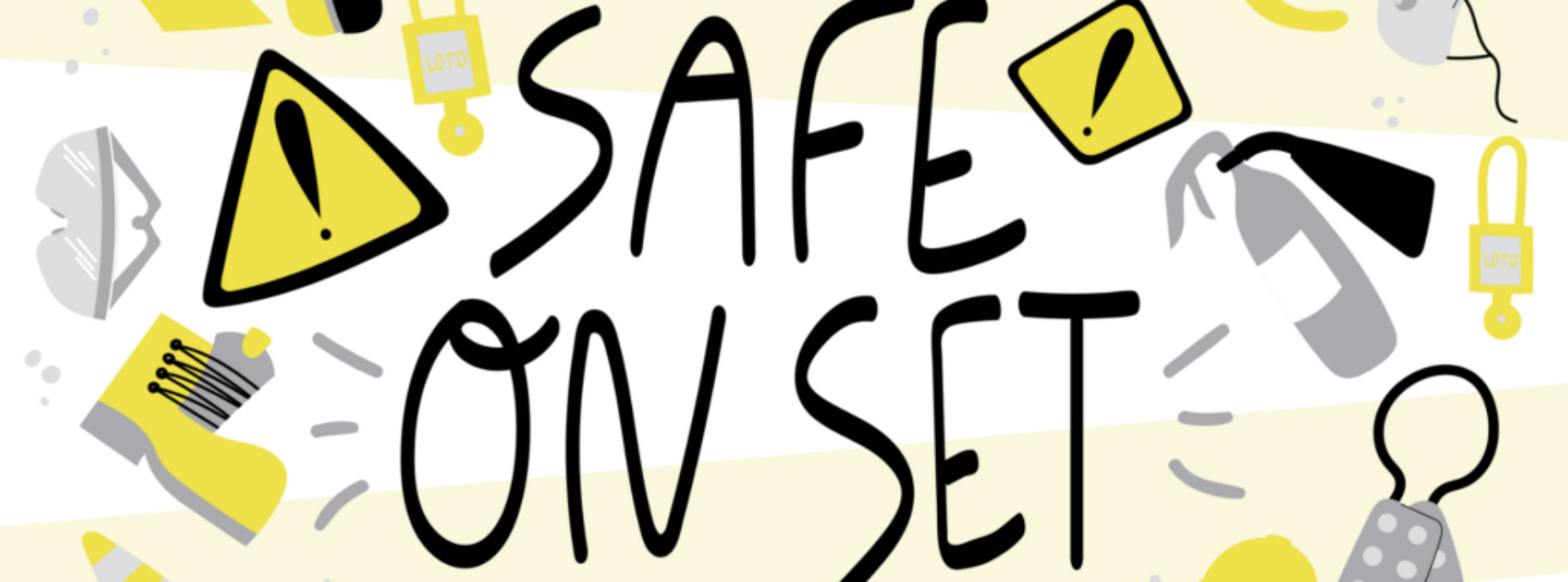An article in Indiescreen 2024
ACTSAFE PROVIDES TOP-SHELF TRAINING AND RESOURCES TO BC PRODUCERS TO HELP KEEP THEIR PRODUCTIONS SAFE—FREE OF CHARGE. WHAT ARE YOU WAITING FOR?
From ladder falls to stunts gone wrong, health and safety incidents—of any magnitude—are the last thing a producer wants for their crew. They can also give stress headaches to any producer not equipped to deal with them. But the fact is, a busy set can be an accident (or many) waiting to happen.
“There’s such a constant pressure to hit the ground running, whether you’re on your soundstage or especially on location for a limited number of days, trying to get the best of the sunlight, et cetera,” explains Dagan Nish, safety advisor for BC’s Actsafe Safety Association. “It’s important to slow down before you speed up.”
Actsafe Safety Association helps BC producers do just that. Actsafe is a not-for-profit health and safety association that services the arts and entertainment industry in the province, providing resources and training to employers, supervisors and workers, in a variety of different ways. Did we mention that the services are free?
Well, technically, many CMPA-BC members are paying for the services without realizing it—and without taking advantage of them. When WorkSafeBC (BC’s workers’ compensation board) collects workers’ compensation insurance premiums from all employers in the province’s motion picture sector, it funnels a percentage of those premiums into Actsafe’s programs. But it’s important to note that Actsafe is not part of WorkSafeBC; Actsafe has no enforcement powers, and it’s only there to help companies and employers make their workplaces as safe as they can be.
So what kind of services does Actsafe provide? It offers a number of e-learning courses, both introductory and more specialized, on safety in the motion picture industry; industry-specific workshops on identifying hazards and investigating incidents; and an extensive library of safety bulletins (see bottom of page for more information).
According to Katharine Pavoni, Director of Industry Programs and Services at Actsafe, “With the amount of money and time that must be spent after an incident occurs, it’s well worth it to have this training in place to help avoid incidents in the first place. It can be a really stressful situation when you don’t have the knowledge needed to properly conduct a workplace inspection, or to properly identify hazards.”
Actsafe also offers a robust, two-stage support system for productions building out their occupational health and safety (OHS) programs (see bottom of page). OHS programs are a requirement for any employer with more than 20 staff members (“Which is the majority of BC productions,” points out Pavoni).
“Producers really need to remember that they are employers,” says Jason Lee, the CMPA’s Vice President of BC Industrial Relations. “And under the occupational health and safety regime in British Columbia, all employers have an obligation to maintain a healthy and safe workplace for all of their workers.”
“Actsafe is there to support productions of all levels,” says Lee. “Its resources can be a huge assistance to independent producers who may not have the depth of resources that a much larger company, like a major Hollywood studio, can dedicate to health and safety.”
“Safety education is key education,” says Pavoni. “Not having it would be like walking off the street and onto a film set and not knowing how to use a walkie. Having it will ultimately make producers better professionals and better supervisors.”
Could your production be safer?
Actsafe’s mission is to make workplaces in BC’s arts and entertainment industry the safest in the world. Below, the free services it offers and how your production can benefit:
SAFETY COURSES
Actsafe offers a number of e-learning courses, including Motion Picture Industry Orientation, which provides an overview of health and safety considerations for the industry, and Motion Picture Safety for Supervisors, which outlines the responsibilities of supervisors, like location managers and heads of department.
Actsafe offers workshops that break down how to identify hazards, investigate an incident and inspect a workplace. “These three factors should be understood by people supervising a set in any capacity,” says Pavoni. “If you don’t have this info before an incident, you probably won’t follow a step-by-step protocol, and you will miss things.”
These are industry guidelines to handling specific safety concerns (e.g., a studio filled with fog all day). Instead of producers writing a memo for every such situation, Actsafe has a wide variety of safety bulletins already on its website, which can be emailed, printed, posted on a safety board or handed out at the beginning of the day.


